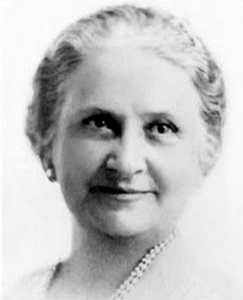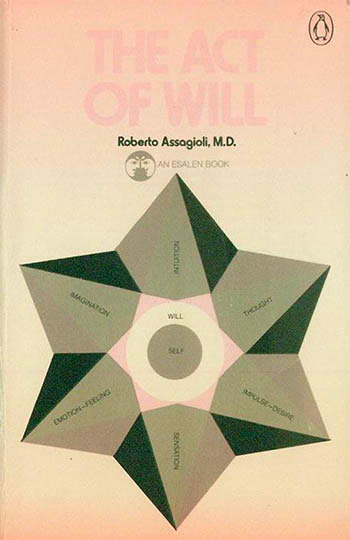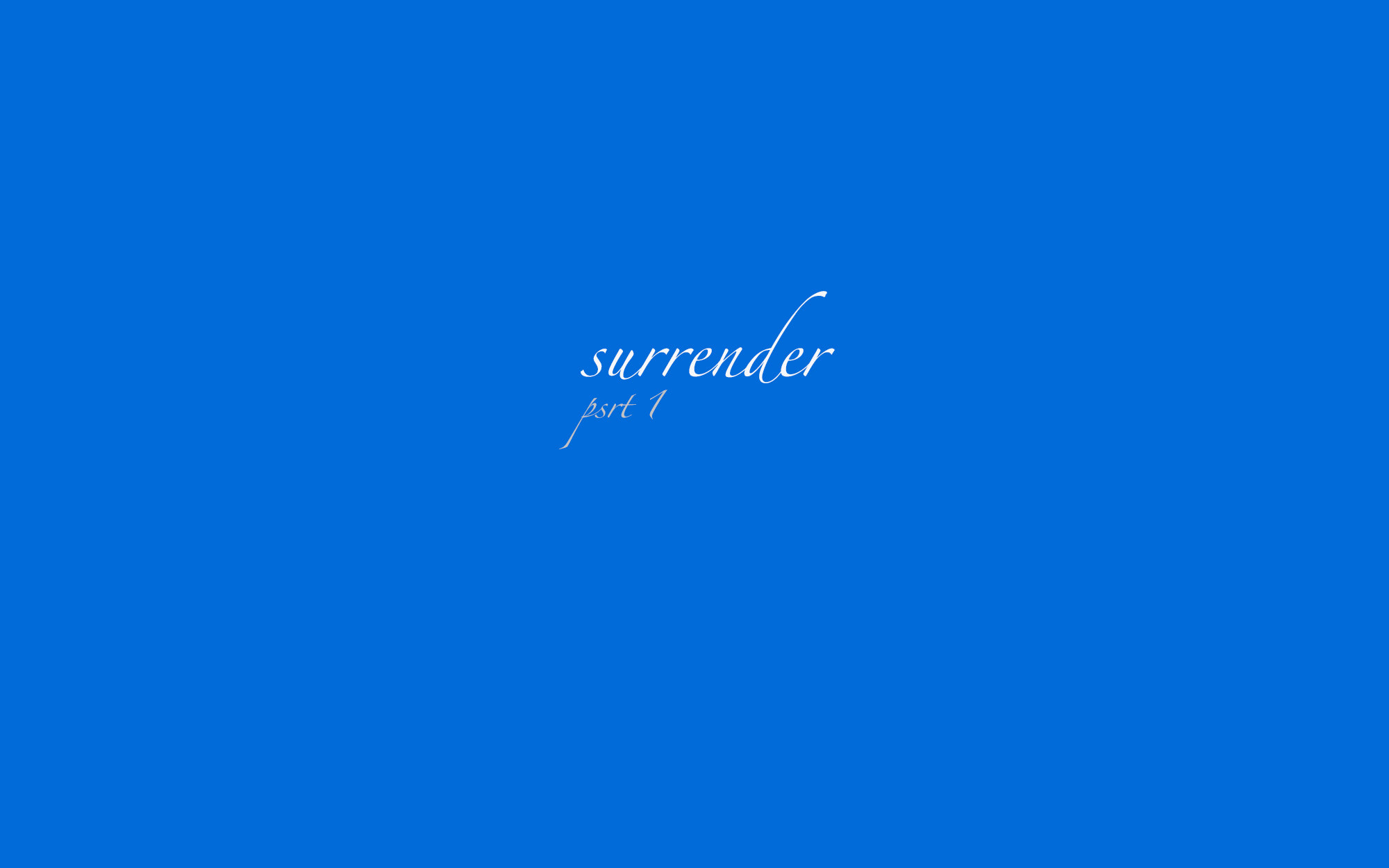[ Press PLAY and you can listen to a reading of this article ]
[ I recommend to use Google Chrome browser if you want to listen to the audio.
I still need to optimize the audio player for some of the other browsers. ]
listen ➡
Dear reader.
If it is so that you are happily leading the best life you can dream of, with a loving family, satisfying profession, nice house, enough money, two cars and a number of good friends, I congratulate you! If this is all you wish for and you have no deeper longing or ambition beyond the material, please stop here, don’t read any further.
I am warning you, reading on could possibly cost you your life!
😆
Kidding!
It’s not gonna be really so dramatic, I promise!
But since you are here and the word “surrender” has not made you run away in disgust, I assume you are somehow interested in spiritual matters.
So I can promise that you may hear some interesting things here, some ultimately profound things that may give a completely different view of life and how one can live it.
Everything that has to do with The Will is quite mysterious and is not taught about at the university. And when it comes to surrendering the personal will and aligning it with the Divine Will, commonly known as the Will of God, we are in completely different territory altogether.
It is not just my opinion but this is the wisdom that masters of the spiritual traditions have been teaching throughout the ages :
The Attitude of Surrender is a key ingredient
of the Spiritual Path.
The willingness and skill to transcend the Egocentric Will
and develop a Free Will
and then surrender and align that to the Divine Will,
this is key to moving on towards Oneness and Higher Consciousness.
I know, this sound like quite an earful and I am not apologizing about it. Because I am happy and grateful that I have arrived at such understanding.
Most of my adult life on the spiritual path I have been somewhat puzzled by the concept of surrender and what it means in practical life, what it means to freedom and free will and the choices that I had to make all the time all along. Now almost half a lifetime later I can not say that I am much wiser about that matter, but I sure have gained a lot of experience and knowledge and a bit of an understanding about it all.
It is still a quest, the “hero’s journey” I am on.
And that journey is what I wish to share with you.
[ It is a lot of ground that I want to cover in this article, so I will try my best to structure the text in a way that is convenient for you.
I will set it up in the same way I conduct my conversations with my Higher Self, with God or whatever high power it is that I am asking for insight. On my walks along the beach.
I will set it up in a manner of questions and answers. My heartfelt questions that usually drive the conversation and the answers that appear in the quiet of my mind in the form of feelings or fully formed intuitive insights.
Those questions will also create some rough structure of chapters that you can jump to, if you wish.
The audio version will also have shortcuts to jump to those chapters in case you don’t want to listen to the whole audio reading. ]
Itinerary / a map & overview / shortcuts to specific chapters
- Intro
- How the Dictionaries define “The Will”:
- The three stages of development of the Will in children according to Maria Montessori
- Roberto Assoglioli’s far-reaching view of Tha Act of Will.
- How the concept of the Transpersonal Will differs from traditional views of willpower
- How is the “Free Will” defined and what does it mean in the context of spirituality
- The idea of Free Will is not of great relevance in Eastern philosophy
- Go to > Surrender as a key attitude on the spiritual path – Part 2 – The Divine Will – The why and the how of Surrender
Itinerary / a overview
shortcuts to specific chaptersx
- Intro
- How the Dictionaries define The Will:
- The three stages of development of the Will in children according to Maria Montessori
- Roberto Assoglioli’s far-reaching view of Tha Act of Will.
- How the concept of the Transpersonal Will differs from traditional views of willpower
- How is the Free Will defined and what does it mean in the context of spirituality
- The idea of Free Will is not of great relevance in Eastern philosophy
- Go to > Surrender as a key attitude on the spiritual path – Part 2 – The Divine Will – The why and the how of Surrender
And now, without much further ado:
Surrender as a Key Attitude on the Spiritual Path.
The Personal Will, the Free Will and the Transpersonal Will.
listen ➡
Here is how the Dictionaries define “The Will”:
The Will is the human capacity that enables us to make choices, set goals, and intentionally direct our actions towards desired outcomes. It is a fundamental aspect of human agency and autonomy, albeit subject to various internal and external influences.
“If there is a will, there is a way”
I am sure you heard this before, right?
The ability “to will”, consciously command willpower and then especially of discovering the capacity of Free Will is such a central aspect of becoming a mature human being, it can not be overstated. Unfortunately most schools and mainstream educational systems today neglect this aspect or even crush the development of a will in children.
But some forward looking thinkers and educators have been visionaries in this field already 100 years ago.
~~~
listen ➡
May I introduce Maria Montessori:

This lady has a lot of intelligent and practical things to say about the developing of The Will in children and adolescents.
The stages of will development, as described by Maria Montessori, are crucial for understanding how children develop their sense of self and their ability to make conscious choices. By understanding these stages, parents and educators can provide the necessary support and environment for children to develop their will and become independent, self-directed individuals.
Here are the three stages of will development of the Will according to Maria Montessori:
Stage 1: The Emergence of the Will:
– In this stage, the child begins to develop awareness of their actions and choices. They start to make deliberate choices, which is the emerging will at work. This stage is characterized by the child’s ability to make choices that align with their own inner needs and tendencies. The child is not yet fully in control of their actions, but they are beginning to develop a sense of self and agency.
Stage 2: The Development of the Conscious Will:
– In this stage, the child’s will becomes more conscious and deliberate. They are able to make choices that align with their own will and the will of others. This stage is characterized by the child’s ability to make considered choices and to lower their impulses to abide by the wishes of others. This stage is often regarded as the highest form of obedience in traditional education.
Stage 3: The Integration of the Will:
– In this stage, the child’s will is fully integrated with their sense of self and their environment. They are able to make choices that align with their own will and the will of others, and they are able to cooperate and adapt to their environment. This stage is characterized by the child’s ability to be joyful and obedient, based on a trusting relationship with others.
More details about the stages of development of kids and the conscious development of the will you can find here:
~~~
listen ➡
Now, when we talk about us adults and consciously developing a real agency of The Will, there is nothing better I know to recommend than “The Act of Will” by Roberto Assagioli.

May I introduce Signore Assagioli:
Roberto Assagioli was an Italian psychiatrist and psychotherapist who developed the concept of psychosynthesis. He was born in 1888 and died in 1974.
He was a college of Freud and Jung and developed a transpersonal and integral view of psychology that included the soul and the Spirit.
He was a pioneer in the field of psychotherapy and is known for his work on the integration of the personality, the development of the will, and the concept of the Transpersonal Will.
Assagioli’s concept of The Will encompasses the capacity to make conscious choices that are aligned with one’s true self and higher purposes. He differentiates between strong will, good will, and skillful will, emphasizing the importance of integrating all three aspects and the role of the Transpersonal Will in guiding the individual toward self-realization and fulfillment.
Here is Assoglioli’s elaborate and far-reaching view of
The Will.
In the context of his work, “the will” refers to the capacity to make conscious choices that are aligned with one’s true self and higher purposes. Assagioli differentiates between three major aspects of the will:
strong will, good will, and skillful will.
1. The Strong Will:
– Strong will is characterized by the energy and determination to achieve goals and overcome obstacles. It embodies the traditional notion of willpower as forceful and assertive.
2. The Good Will:
– Good will focuses on the ethical and altruistic intentions behind actions, emphasizing the importance of willpower in promoting the common good and fostering harmonious relationships.
3. The Skillful Will:
– Skillful will pertains to the effective and efficient use of one’s will to navigate life’s complexities, ensuring that actions are both purposeful and adaptable.
Assagioli emphasizes the importance of integrating all three aspects of the will, facilitating a more rounded and effective expression of the will. He also introduces the concept of the Transpersonal Will, which transcends the individual ego and aligns with higher purposes and spiritual values.
The development of the will is crucial for initiating and sustaining the journey of psychosynthesis, enabling the individual to navigate life with intention and integrity. Assagioli provides various exercises and techniques for cultivating and strengthening the will, including meditation and contemplation, creative expression, and working with symbols and archetypes.
More details can be found here:
listen ➡
What makes Assoglioli’s views outstanding in the field of psychology and personal development is the integration of what he called “The Transpersonal Will”
His concept of the Transpersonal Will differs from traditional views of willpower in several key ways:
1. Transcendence of the Ego:
– Traditional views of willpower often focus on the individual ego and its ability to exert control over external circumstances. In contrast, Assagioli’s Transpersonal Will transcends the individual ego, aligning with higher purposes and spiritual values.
2. Higher Self Connection:
– The Transpersonal Will is connected to the individual’s higher self or soul, facilitating access to deeper levels of consciousness and understanding. This connection is distinctly different from the ego-centered views of willpower.
3. Transpersonal Will as Guiding Force:
– Assagioli’s Transpersonal Will is seen as a guiding force that leads individuals toward self-realization and the fulfillment of their true potential. This perspective emphasizes the will’s role in facilitating personal growth and spiritual development.
4. Integration of the Transpersonal Will with Other Aspects of The Will:
– Assagioli’s concept of the Transpersonal Will is not meant to dominate or replace other aspects of willpower, the strong will, good will, and skillful will. Instead, it is integrated with these aspects to facilitate a more comprehensive and effective expression of the will.
5. Practical Applications:
– Assagioli provides various exercises and techniques for cultivating and strengthening the Transpersonal Will, such as meditation, contemplation, creative expression, and working with symbols and archetypes. These practices are designed to enhance self-awareness, self-regulation, and the capacity to act in alignment with one’s deepest values and goals.
~~~
listen ➡
Now, how does the idea of “Free Will” come into the picture, how is it defined and what does it mean in the context of spirituality?
Definition of “The Free Will”:
Free Will is defined to the ability of individuals to make choices that are not predetermined by preexisting causes, outer conditions or divine intervention. It implies that humans have the capacity to make decisions independently of any external pressures or predestination.
The idea of free will has evolved through a rich tapestry of philosophical, religious, and cultural influences. It has been shaped by ancient Greek philosophy, especially by Plato and Aristotle, by religious teachings from various traditions, and modern philosophers.
St. Augustine played a crucial role in shaping the concept of free will in Western philosophy by emphasizing the importance of human moral agency, the role of grace in restoring free will, and the relationship between free will and God’s sovereignty.
While interpretations and emphases differ, the core idea remains the capacity for individuals to make choices that are not entirely determined by external factors or preexisting causes, allowing for moral responsibility and personal autonomy.
~~~
listen ➡
It is interesting to note that The idea of Free Will is not of great relevance in Eastern philosophy or practical life in the East.
In Chinese and Indian philosophical traditions the focus is generally on adaptation and harmony and moral responsibility. The goal of agency is not to attain and exercise free will but to adapt to ever-changing circumstances and establish harmony with other beings in the environment. This perspective shifts the focus from individual self-reliance to cooperation and interdependence.
Ancient Chinese philosophers approach issues of freedom and moral responsibility by emphasizing the importance of living in harmony with the natural world and the impermanence of all things. Their views on freedom and moral responsibility are distinctly different from Western perspectives and highlight the importance of adapting to the world rather than competing against it.
I think I like that view a lot!
~~~
listen ➡
Well, you may have realized by now that this Part 1 is simply something like a preamble for part 2, a kind of necessary understanding that will make it easier to delve into the more spiritual aspects of the Divine Will, or The will of God as it is commonly revered to.
And the Attitude of Surrender, that is a key ingredient on the spiritual path.
You are very welcomed to move on to Part 2.

